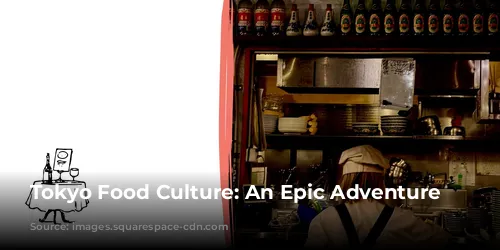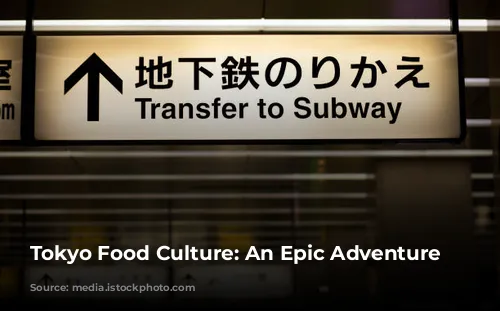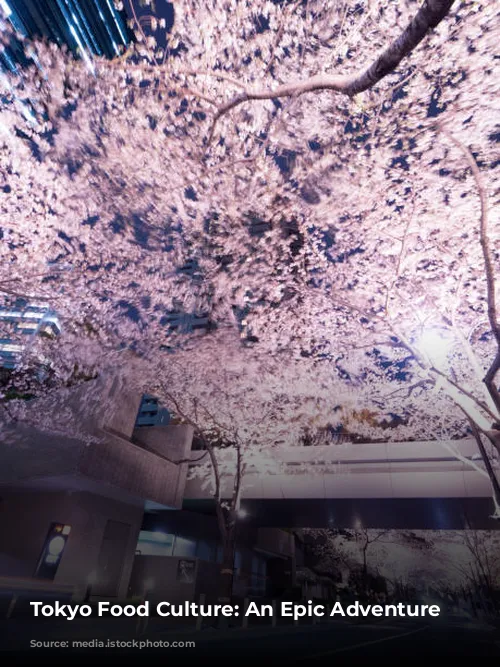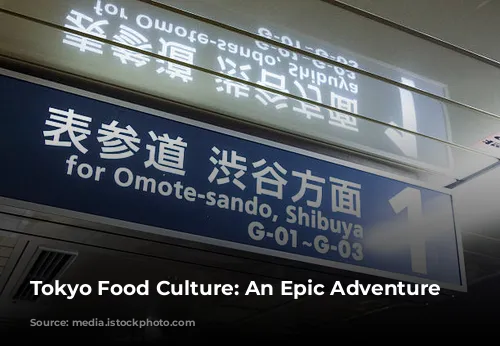Tokyo is a foodie’s paradise, bursting with delicious dishes that will tantalize your taste buds. It can be a bit overwhelming at first, but don’t worry, I’ve got you covered. Here’s a guide to confidently navigate Tokyo’s culinary scene.

Navigating the Restaurant Scene:
Step into any restaurant and you’ll likely be greeted with a simple hand gesture—a way to indicate the number of people in your party.
Many restaurants will have a ticket machine by the entrance. Simply choose your dish, pay, and collect your ticket. This ticket then acts as your order, which you hand to the staff once seated.
If you’ve secured a table and there’s no ticket machine, don’t hesitate to call over the staff when you’re ready to order. Simply raise your hand and make eye contact. If they don’t notice, try saying “sumimasen”. Don’t worry, this is perfectly normal in Japan.
Pro-tip: Need an English menu? Try “eigo menu…?”. It might be broken Japanese, but it gets the point across.

Common Phrases You’ll Hear:
Traveling through Japan will inevitably expose you to some basic questions, especially when paying for things. Here are the most common ones:
One of the most frequent questions you’ll encounter (at convenience stores and shops) is whether you need a bag. The key word here is “fukuro.” If you need a bag, say “onegaishimasu.” If you don’t need one, say “daijoubu.”
Another question you might hear is whether you have a point card. Look for the words “pointo cardo.” If they ask, simply shake your head no (assuming you don’t have one).
Here are a few more key phrases to practice:
- “Daijoubu” – It’s okay; I’m fine; no thank you
Tip: The “R” sound in Japanese is often pronounced more like a soft “D” sound, similar to Spanish. For instance, “fukuro” sounds like “fuu-kuu-dou.”
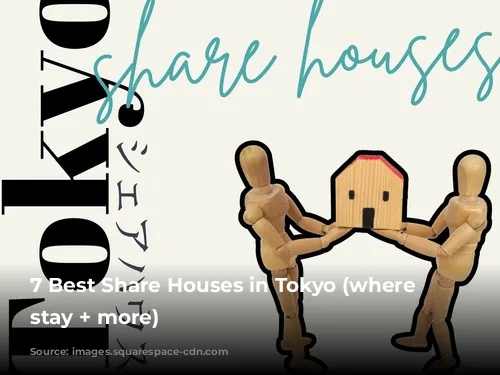
Respectful Etiquette:
You’re probably already familiar with some of Japan’s etiquette and social “rules.” But here are some additional helpful ones to ensure you show respect for everyone around you.
- Avoid eating or drinking on public transportation.
- Don’t eat while walking around busy streets – try finding a nearby park instead.
- Avoid talking on the phone on trains.
- If you smoke, use designated smoking areas – don’t smoke just anywhere.
- On escalators, stand to the left side, leaving the right side for people who wish to walk.
Explore further:
- Etiquette in Japan (What to Know)

Share Houses: A Great Way to Connect
I’m a big fan of share houses. I stay in one every time I visit Tokyo. They offer flexible lease terms and lower costs, providing you with a private room (or sometimes a studio apartment) while sharing a kitchen, shower, and bathroom.
These accommodations are especially foreigner-friendly, catering to travelers and foreign workers. They often have English-speaking staff, making communication a breeze.
One of the best features is the sense of community. If you’re traveling alone, this is a fantastic way to connect with fellow travelers, locals, and new friends.
You can read my full list of the best share houses in Tokyo here.
Enjoy your trip to Tokyo! It’s one of my favorite cities in the world, and you’re in for a treat.

